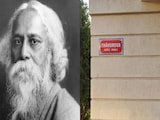Monsoon season brings relief from the heat but also increases the risk of infections due to stagnant water and poor sanitation. The cases of typhoid, cholera, diarrhoea and mosquito-borne diseases are common, but a lesser-known brain-damaging tapeworm infection, known as neurocysticercosis, also spreads during this season.
Neurocysticercosis is the infection of the brain or spinal cord that happens when humans consume vegetables and fruit contaminated by tapeworm eggs. "Neurocysticercosis, a serious and debilitating parasitic brain infection, is an important public health issue, particularly for several parts of the world where sanitation and hygiene systems do not adequately serve the population," Dr Rathijit Mitra, Neurosurgeon - CMRI Kolkata, told NDTV.
It is caused by the larval form of Taenia solium (pork tapeworm), and often remains undiagnosed until the person starts to show neurological symptoms.
Increased Risks During The Monsoon Season
Dr Mitra said that the risk of exposure increases in the monsoon season when heavy rains can lead to flooding that can contaminate water sources and fields. Hence, it becomes incredibly important for the public and healthcare providers to know the cause, signs and symptoms, and also the preventive measures.
"Ideally, we humans are not supposed to host this stage of the worm, but accidentally, by eating unclean and unhygienic food, the egg stage enters the body and makes its way into the brain through the bloodstream. Once the egg reaches the brain, it causes inflammation and swelling in the Brain," Dr Ritu Jha, Director & HOD - Neurology, Sarvodaya Hospital Sector-8, Faridabad, told NDTV.
The most common contaminated item that a person consumes is improperly cooked pork; however, the true risk is frequent exposure where sanitation is poor enough to spread faecal material that is contaminated with the larvae.
What Are The Symptoms Of Neurocysticercosis?
Seizures: The most common clinical presentation. These may occur suddenly in a previously healthy person.
Headaches: Chronic or severe headaches are commonly present; commonly due to increased intracranial pressure.
Cognitive Decline: Confusion, loss of memory and difficulty concentrating can indicate that the infection has progressed.
Neurological deficits: Weakness or numbness in certain extremities (legs/arms), visual changes, or loss of coordination are present.
Vomiting or fainting: Patients may have a change in level of consciousness or faint due to increased pressure in the skull.
According to Dr Mitra, the symptoms of neurocysticercosis will differ in severity, depending on the amount, size and location of the cysts in the brain.
Diagnosis of neurocysticercosis is usually made through an imaging technique such as an MRI or CT scan, where the presence of the cysts in the brain will be visible.
Neurocysticercosis is not as commonly known as other diseases of the brain or neurological diseases more broadly, but it is a significant public health issue, especially in developing parts of the world.
With quick diagnosis, proper medical treatment, and, most importantly, improved hygiene and sanitation practices in order to help avert infection, neurocysticercosis is a disease that is controllable and preventable.
Related Infections to Know About
Cysticercosis (general): When the larvae of Taenia solium infect other tissues (i.e., muscles, eyes, or spinal column)
Hydatid Disease: Caused by Echinococcus granuloses, forming cysts but typically in the liver and lungs.
Toxoplasmosis: A protozoal infection with contaminated food (and cat feces) that can impact the brain and sometimes liver, particularly in immunocompromised patients.















